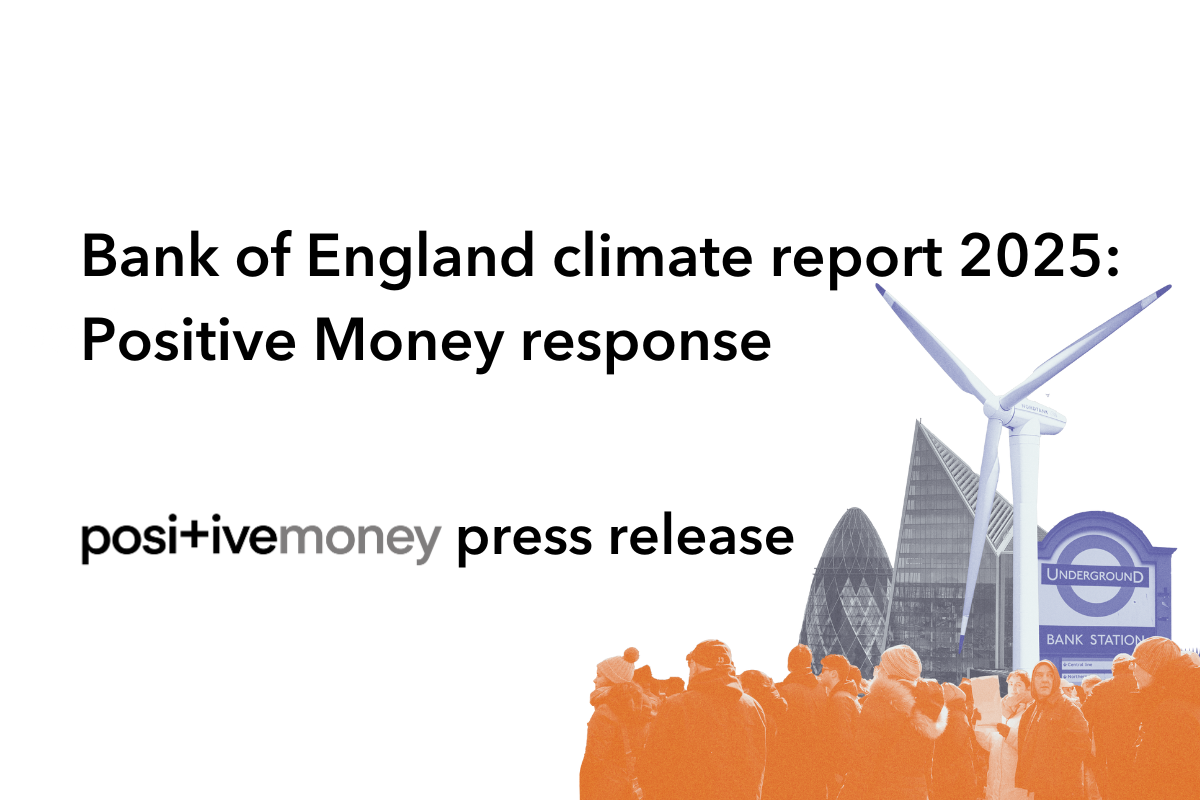
Green FinanceUK
26 June 2025
Research says green overhaul needed to end ‘hidden subsidy’ to fossil fuel companies
London, 28 February 2023 – By accepting financial firms’ fossil fuel assets as collateral against loans made to them, the Bank of England is effectively providing a ‘hidden subsidy’ to environmentally destructive companies, according to a new paper from research and campaign group, Positive Money.
Through a number of little-known schemes the Bank of England lends public money to banks against collateral, which includes not only government bonds but also debt issued by corporations. Positive Money calculates that the Bank of England has allocated £165bn to lenders in this way since 2014 through just one of these schemes, the Indexed Long-Term Repo Facility.
Companies whose bonds are accepted by the Bank include oil and gas producers Shell and TotalEnergies, as well as coal producer BHP Group and mining giant Rio Tinto. By accepting harmful assets like bonds from fossil fuel companies as collateral, Positive Money says, the Bank is implicitly subsidising the very companies driving climate and nature destruction.
The authors say this is because assets accepted by the Bank are boosted in value, because banks and investors know they can be easily exchanged for central bank reserves, making them more liquid. This makes it easier for these companies to raise money for new projects.
The paper argues that not only does the subsidisation of fossil fuel companies contradict the Bank’s responsibility for maintaining financial stability, because climate change poses huge risks to our wider economy, but that it contravenes the Bank’s mandate to support the government’s target of reaching net zero by 2050.
Positive Money is therefore calling for the Bank of England to exclude assets from the most environmentally damaging companies, including fossil fuels, from its collateral framework, due to the risks they pose both to climate and nature goals and to financial stability.
Positive Money’s senior policy & advocacy officer and lead author of the paper, Ellie McLaughlin, said:
“In accepting fossil fuel assets as collateral against its lending, the Bank of England is essentially using the powerful tools at its disposal to provide a hidden subsidy to this sector.
“Not only does this mean public money is being used to prop up an industry detrimental to our future on this planet, but it fails to account for the fact that fossil fuel holdings are likely to become stranded assets – which would leave the public to foot the bill when they become worthless and banks crash the economy again.
“Excluding the most environmentally damaging assets, starting with fossil fuels, from this lending framework is the only way for the Bank of England to meet its responsibilities of maintaining financial stability and supporting the transition to net zero.”
Notes
You can read the full paper here: https://positivemoney.org/publications/greening-the-bank-of-englands-collateral-framework/
About
Positive Money campaigns for a money and banking system which supports a fair, democratic and sustainable economy. Set up in the aftermath of the financial crisis, Positive Money is a not-for-profit company funded by charitable trusts and foundations, as well as small donations from its network of over 65,000 supporters. www.positivemoney.org
